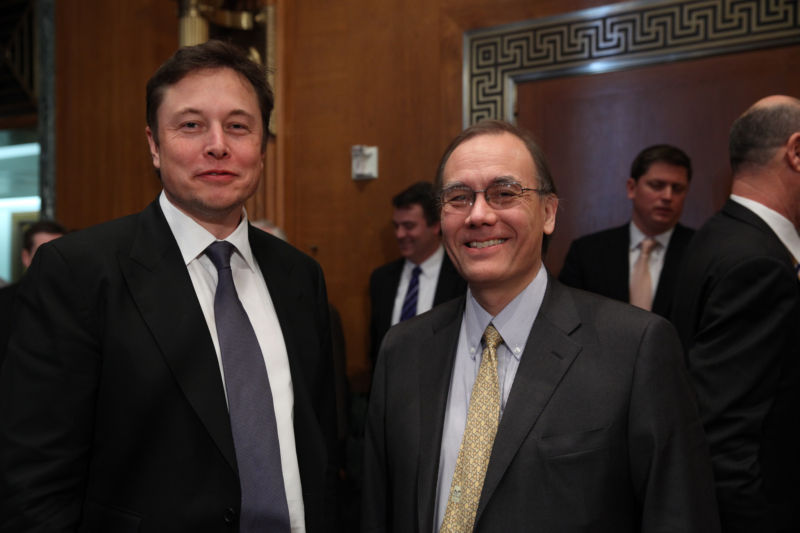Trump space adviser: Blue Origin and SpaceX rockets aren’t really commercial
Ars Technica » Scientific Method 2017-11-06

Enlarge / Elon Musk of SpaceX, left, and Scott Pace, right, of George Washington University, testify before the Senate Subcommittee on Defense under the Committee on Appropriations in 2014. (credit: George Washington University)
In recent months, the executive secretary of the National Space Council, Scott Pace, has worked assiduously behind the scenes to develop a formal space policy for the Trump administration. In a rare interview, published Monday in Scientific American, Pace elaborated on some of the policy decisions he has been helping to make.
In the interview, Pace explained why the Trump administration has chosen to focus on the Moon first for human exploration while relegating Mars to becoming a "horizon goal," effectively putting human missions to the Red Planet decades into the future. Mars was too ambitious, Pace said, and such a goal would have precluded meaningful involvement from the burgeoning US commercial sector as well as international partners. Specific plans for how NASA will return to the Moon should become more concrete within the next year, he added.
In response to a question about privately developed, heavy-lift boosters, the executive secretary also reiterated his skepticism that such "commercial" rockets developed by Blue Origin and SpaceX could compete with the government's Space Launch System rocket, which is likely to make its maiden flight in 2020.